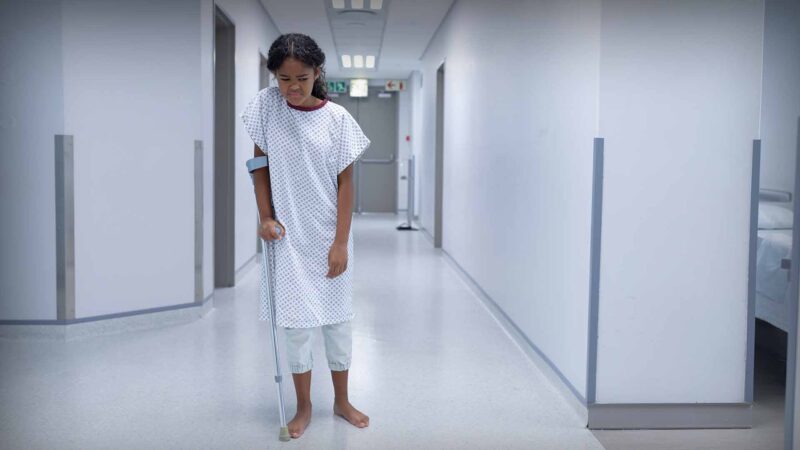DNA REPAIR ON THE FANCONI ANAEMIA PATHWAY
Associate Professor Wayne Crismani
Laboratory Head, DNA Repair & Recombination
St Vincent’s Institute of Medical Research,
Melbourne, Australia
RESEARCHER PROFILE
Filmed in Melbourne, Australia | August 2025
Associate Professor Wayne Crismani is an internationally recognised expert in DNA repair, with a particular focus on Fanconi anaemia (FA)—a cancer-predisposition and bone marrow failure syndrome marked by extreme sensitivity to DNA damage. Based at St Vincent’s Institute in Melbourne, he leads a research program dedicated to understanding the genetic, cellular, and reproductive consequences of FA. He is currently supported by a Victorian Cancer Agency Mid-Career Fellowship and funding from the National Health and Medical Research Council.
His career spans academia and industry across Australia, Europe, and the United States. He has contributed to several advances in FA genetics, including the identification of new functions of FA genes, particularly in reproduction, development of isogenic cell models, and use of high-throughput functional and screening assays. He has also demonstrated that FA is under-diagnosed in Australia, which has major consequences for these individuals and for the public healthcare system. His research has been published in top-tier journals and underpins several patents, including technologies that have been successfully licensed.
Associate Professor Crismani also leads multidisciplinary studies investigating fertility and cancer risk in individuals with FA. These include the first systematic study of biological parenthood and assisted reproductive technologies in adults with FA, and efforts to identify early biomarkers of oral cancer in this high-risk group. His work is conducted in close collaboration with scientists, clinicians, fertility specialists, and patient advocates. He co-founded Fanconi Anaemia Support Australasia with a group of families in 2019 and continues to organise scientific and social events for the FA community.
He works with international FA registries, research consortia, and the Fanconi Cancer Foundation to ensure research findings inform real-world care. His program bridges molecular biology, reproductive health, and translational science, with the goal of improving health outcomes for people with FA and genetic conditions.
Source: Supplied
You Might also like
-
Professor Matthew Kiernan
BRAIN AND MIND CENTRE
@ UNIVERSITY OF SYDNEY, NEW SOUTH WALES AUSTRALIA -
Neuroscience, neuropharmacology and exercise science
Dr Jacob Thorstensen is an early-career Assistant Professor in Neuroscience and Physiology in the Faculty of Health Sciences & Medicine at Bond University. He is also an honorary research fellow in The School of Biomedical Sciences at The University of Queensland. His work has unveiled several new neuroscientific mechanisms which have future applications for movement disorders.
-
CASE STUDY Next Generation Condom Contraception
Eudaemon Technologies, an early-stage medtech company with a focus on sexual reproductive health, is developing a hydrogel condom to address the need for a better feeling, next generation condom, with the potential to improve user experience and address issues with traditional latex condoms.
“Over 1 million STI’s being diagnosed every day and up to 120 million unplanned pregnancies every year result in a $60 billion health burden across the globe”, says Co-Founder and Executive Director of Operations, Dr Simon Cook.
Formed in 2018, the company focuses on developing tough hydrogels as an alternative to address issues with odour, colour, and taste commonly associated with latex condoms. This technology can be loaded with small molecule drugs for flavours or anti-STI compounds, and was developed in response to a grant from the Bill and Melinda Gates Foundation to address unplanned pregnancies and STIs.



